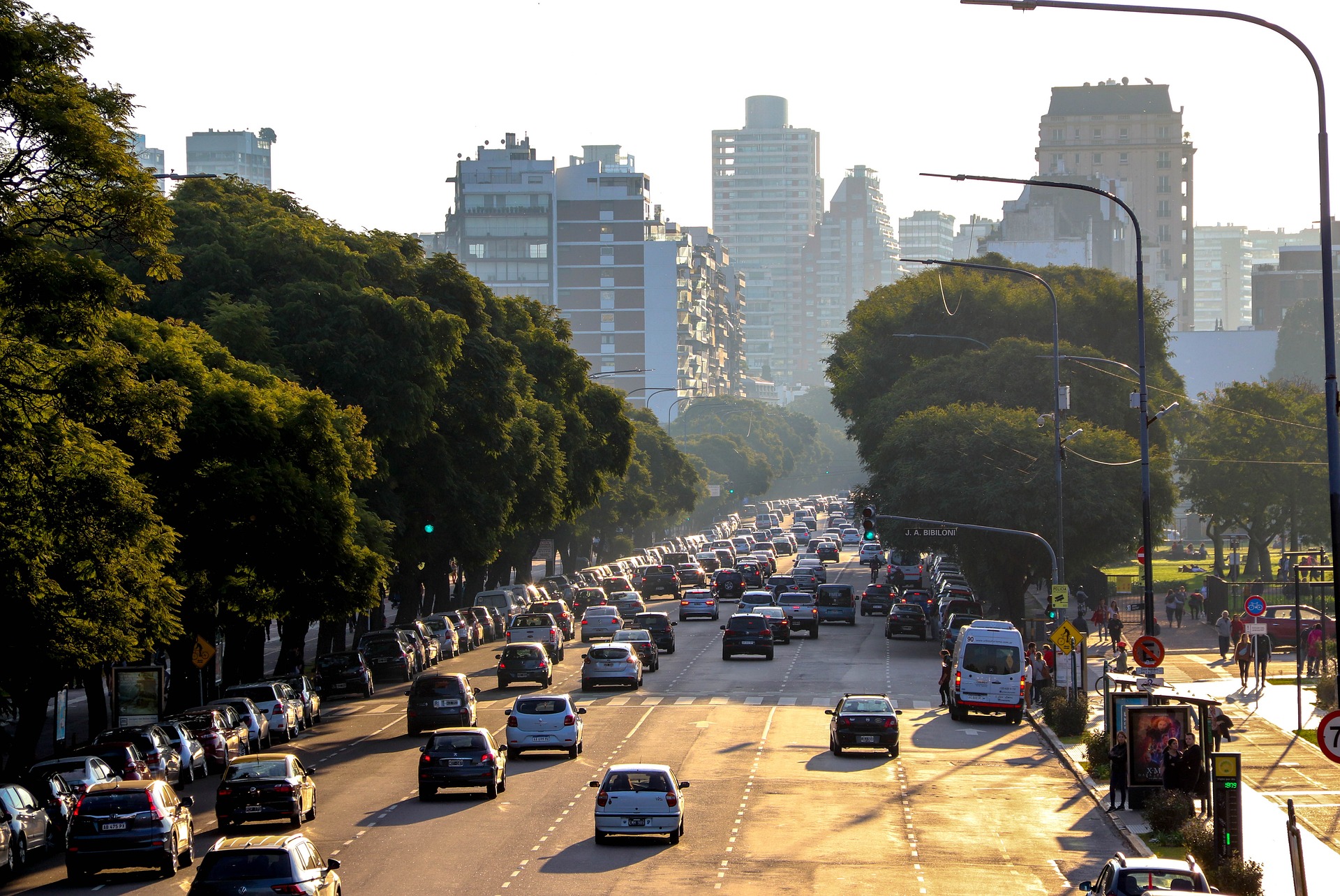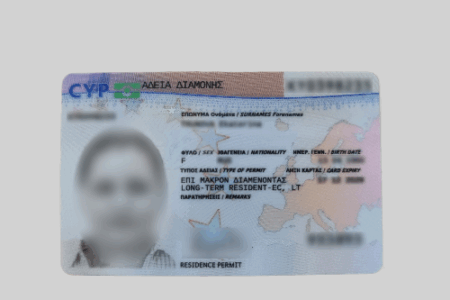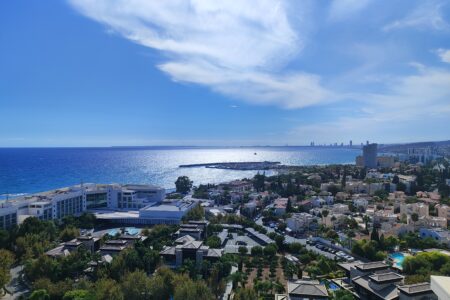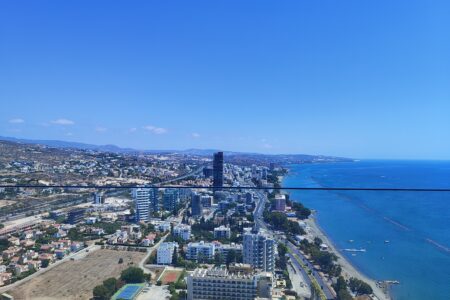Cyprus, a beautiful Mediterranean island known for its beaches and cultural treasures, presents a common challenge for both residents and tourists: getting around without a car can be difficult. Public transportation in Cyprus is often seen as inadequate and unreliable, making personal vehicles the preferred mode of transport.
Contents
- 1 Public Transportation in Cyprus: A Closer Look
- 2 The Importance of Cars in Cyprus
- 3 Car Ownership in Cyprus: Statistics and Trends
- 4 Public Transport in Cyprus: Reality and Alternatives
- 5 Alternatives and Solutions
- 6 Cars in Cyprus: Practicality and Choice
- 7 Road Quality in Cyprus: Smooth Travel Around the Island
- 8 Parking in Cyprus
- 9 Gas Stations in Cyprus
- 10 Traffic Regulations in Cyprus
- 11 Car Rental in Cyprus
- 12 Buying a Car in Cyprus
- 13 Final Thoughts: Driving in Cyprus
Public Transportation in Cyprus: A Closer Look
The state of public transportation in Cyprus is rather disappointing. While there are bus services between cities, they operate at infrequent intervals and their schedules are not always convenient for passengers. City buses also exist, but they do not adhere to strict schedules, often leading to long waits. Public transportation is primarily used by students and tourists, but even they can encounter significant inconveniences.
The Importance of Cars in Cyprus
Given the limitations of public transportation, cars have become an essential part of life in Cyprus. Almost every family owns at least one car. However, as with any form of convenience, car ownership comes with its own set of costs.
Car Costs in Cyprus:
- Car Wash: Approximately €10 per wash.
- Transport Tax: The amount depends on the type and power of the car, averaging about €120 per year.
- Car Insurance: Costs vary based on the insurance company and vehicle condition. Basic insurance starts at around €250 per year. Comprehensive insurance for cars valued between €7,000 and €10,000 may cost around €400-€500 annually.
- Fuel: Monthly fuel expenses can vary depending on the vehicle and usage, with an average family spending about €100 per month. Luxury car owners may spend significantly more, potentially €700 or more per month.
Life in Cyprus is virtually unimaginable without a car, particularly for foreigners accustomed to more developed public transport systems. While car ownership involves considerable expenses, the convenience and freedom it offers make it a vital part of life on the island.
Car Ownership in Cyprus: Statistics and Trends
According to recent research by Confused.com, Cyprus ranks among the top countries in Europe for the number of cars per household and per capita. These impressive statistics highlight the strong reliance of the Cypriot population on private vehicles.
Car Ownership Per Capita
In Cyprus, there are 645 car owners per 1,000 inhabitants, placing the island third in Europe, behind Luxembourg (681) and Italy (663). Other countries in the top five include Poland and Finland, with 642 cars per 1,000 inhabitants. In contrast, countries with the fewest cars per 1,000 inhabitants include North Macedonia (205), Romania (357), and Latvia (381).
Car Ownership Per Household
Cyprus also leads in the number of cars per household, with an average of 1.72 cars per household, effectively meaning two cars per family. Poland follows with 1.67 cars per household, and Luxembourg with 1.66 cars. Other countries in the top five are Malta (1.55 cars per household) and Italy (1.52 cars per household). North Macedonia (0.75), Latvia (0.84), and Sweden (0.92) have the lowest figures.
Public Transport in Cyprus: Reality and Alternatives
When discussing transport infrastructure in Cyprus, the availability and efficiency of public transport often come into question. Below is an overview of the current state of public transport on the island and some alternatives for residents and tourists.
Limited Coverage and Schedule
Public transport in Cyprus is limited in coverage and operates on irregular schedules. Buses run on a few routes, and not throughout the day. Relying on public transport to get to work on time or meet other commitments is often not feasible.
In major cities like Limassol and Larnaca, there are a few bus routes, but they may only offer a few trips per day. In resort areas like Limassol, Larnaca, and Paphos, buses can operate 24 hours a day, with fares depending on the time of day: €5 before 21:00 and €2.50 after.
Infrastructure Issues
Pedestrian infrastructure in Cyprus also leaves much to be desired. In central city areas, cars parked on sidewalks make them inconvenient and unsafe for pedestrians. This situation often forces mothers with strollers to walk on the road, posing safety hazards.
Intercity Transportation
Public transport is not always suitable for traveling between natural attractions and villages in Cyprus. Intercity buses operate on limited schedules, making it difficult to return to the city on the same day. Taxis can be a costly alternative; for example, a trip from Limassol to the highest mountain on the island could cost around €70 one way.
Alternatives and Solutions
Despite the limitations of public transportation in Cyprus, there are several alternatives to make getting around more comfortable.
- Car Rentals and Car Sharing: Renting a car in Cyprus is relatively affordable and convenient for short trips, offering an alternative to car ownership, especially for tourists. Car sharing services are also available and can be a good option for short-term use.
- Taxis and Ride-Hailing Services: These are popular among both residents and tourists, providing a convenient and reliable way to get around the city, often at a lower cost than public transport.
- Bicycles and Scooters: Using bicycles and scooters in Cyprus can be challenging due to limited bike lanes and the risk of theft. However, some people prefer this mode of transport for short distances.
Public transport in Cyprus is limited in availability and flexibility, making car ownership an attractive option for both residents and tourists. However, alternatives such as taxis, car rentals, and ride-hailing services also offer convenient options for navigating the island.
Cars in Cyprus: Practicality and Choice
In Cyprus, it is common for local families to own at least two cars, reflecting the lifestyle and needs of family members. Below is an exploration of why this choice is standard practice and which cars are ideal for life on the island.
Cars for Every Family Member
A typical Cypriot family with children usually owns two cars. The first is a larger vehicle, such as a sedan, SUV, or minivan, primarily used by the husband for commuting to work and other daily tasks. The second car, often a small Japanese or European model, is used by the wife for transporting children to school and for her own commuting if she works. On weekends and holidays, the larger car is used for family outings or picnics.
Choosing a Small Car
Many visitors, noticing the popularity of small cars on the island, opt to purchase a compact Japanese car. These vehicles are affordable and common in Cyprus. However, this choice may not be ideal, particularly for trips to the mountains.
Small city cars are suitable for driving on flat streets and highways, but they struggle on mountainous terrain. Additionally, in winter, there are restrictions on driving above 1,000 meters without chains or four-wheel-drive vehicles. A city car may be slow and difficult to drive uphill.
The Need for a Larger Car
If you have a family and plan to travel between cities or into the mountains, a larger vehicle may be necessary. While a small car can be useful, it should not replace the main car, especially for long distances and mountainous terrain.
The Ideal Car for Cyprus
The ideal car for Cyprus is not necessarily a luxury brand like Mercedes or BMW, which are popular among locals and visitors. Practical cars like Land Rover or Range Rover SUVs are more suitable, offering a balance of size, ease of parking, and reliability, making them an ideal choice for living on the island.
Pick-up trucks are also popular among Cypriots, used for both work and family trips. They are versatile, allowing families to load up for weekend trips to the country or beach. However, pick-up truck owners often find themselves helping friends transport various items.
Interestingly, popular car models in Cyprus include the Kia Rio, Hyundai Tucson, Toyota C-HR, Kia Sportage, and Nissan Juke. As of June 2023, there were 4,094,000 registered vehicles on the island, despite a population of approximately 1.2 million.
Road Quality in Cyprus: Smooth Travel Around the Island
The quality of roads in Cyprus is a key concern for tourists and locals alike. Fortunately, about 90% of the island’s roads are of excellent quality, including highways connecting major cities and paved roads linking villages and smaller towns. These well-maintained roads ensure convenient and safe travel across the island.
One significant advantage for travelers is the absence of toll roads in Cyprus, making exploration of the island more accessible and cost-effective.
Parking in Cyprus
Parking can be a challenge in Cyprus, especially in larger cities like Limassol, Paphos, Larnaca, and Nicosia, where traffic congestion is common. Paid hourly parking is typical, with costs starting at one euro for the first hour and a small surcharge for additional hours, typically around €0.50 per hour. Payment is made via parking meters.
While there are paid parking options, free parking spaces can often be found near churches, shopping malls, government offices, and tourist attractions. Hotels often provide parking spaces or free parking nearby.
Gas Stations in Cyprus
Gas stations are plentiful in Cyprus, located near cities, highways, and coastal areas. However, in mountainous areas and natural parks, gas stations may be scarce, so travelers should ensure they have enough fuel before heading to these locations.
Fuel Prices
Fuel prices in Cyprus are fairly consistent across gas stations. As of August 2023, prices are approximately €1.489-€1.581 per liter for petrol and €1.512 per liter for diesel. These prices may fluctuate, so checking current prices online or via mobile apps is recommended.
Types of Gas Stations
Cyprus offers both automatic gas stations, where you fill up yourself, and traditional stations with attendants. Most gas stations operate from 7:00 am to 8:00 pm, with some offering 24-hour service for added convenience.
Navigation and Finding Gas Stations
Most gas stations in Cyprus are located off main roads, accessible via parallel roads or special exits. Because these stations may not always be visible from the highway, it’s advisable to use a navigation system or GPS to locate them, especially when traveling to unfamiliar areas.
Traffic Regulations in Cyprus
Cyprus follows a European driving culture, where courtesy and adherence to traffic laws are expected. Here are some key regulations and tips for driving on the island:
- Driving Side: Cyprus drives on the left, similar to the UK. This means the steering wheel is on the right side of the vehicle, which might be unfamiliar to those used to right-hand driving. It’s important to stay alert and follow the local driving conventions.
- Speed Limits: Speed limits are strictly enforced and vary depending on the type of road:
- Highways: 100 km/h
- Outside cities: 80 km/h
- Within cities: 50 km/h Exceeding these limits can result in fines, so it’s important to observe speed signs and adjust your speed accordingly.
- Alcohol Limits: The legal blood alcohol limit is 22 mg/100 ml, which is very low. It is advisable not to consume alcohol if you plan to drive. Severe penalties apply for driving under the influence, including fines and possible court appearances.
- Seat Belts: Wearing seat belts is mandatory for all passengers in the vehicle, including those in the rear seats. This rule is enforced to enhance safety and reduce injuries in case of accidents.
- Child Safety: Children under 5 years old must be seated in appropriate car seats. This rule is consistent with safety practices in most European countries.
- Mobile Phones: Using mobile phones while driving is prohibited unless you have a hands-free system. This includes talking or texting, which can lead to fines if caught.
- Parking Regulations: Be mindful of parking restrictions, especially in urban areas. Illegal parking can result in fines, and in some cases, your car may be towed.
- Fines for Violations: Cyprus has strict penalties for traffic violations, such as:
- Not wearing a seatbelt: €150 fine
- Transporting a child without a car seat: €150 fine
- Speeding: €2-5 for each km/h over the limit
- Running a red light: €300 fine
- Driving under the influence: Fines range from €125 to €500, with severe cases leading to court.
Car Rental in Cyprus
Renting a car in Cyprus is a popular option for tourists, offering the freedom to explore the island at your own pace. Here are some tips to ensure a smooth rental experience:
What You Need for Rental
To rent a car in Cyprus, you will need a valid national or international driving license and a credit card for payment and deposit. Rental costs vary depending on the season, type of car, and insurance options. On average, rental prices range from €20-€30 per day.
Tips for Saving Money
- Read the Terms: Carefully review the rental terms to avoid hidden fees or unexpected charges. Some companies may require additional insurance or impose conditions for certain types of credit cards.
- Be Punctual: If you’re late for your reservation, your booking might be canceled, and the deposit may not be refunded. Plan for extra time, especially when picking up a car at the airport.
- Inspect the Vehicle: Before driving off, inspect the car for any existing damages and document them with photos or videos. This will help avoid disputes when returning the car.
- Use GPS: Instead of renting a navigation device, use your smartphone with offline maps.
- Avoid One-Way Rentals: Returning the car to a different location may incur extra fees, usually around €30.
- Full Tank Policy: Opt for rental companies that provide a full tank of fuel upon pick-up to save on refueling costs.
- Book Online: Online bookings, especially with airport pick-up, can save you time and money.
Buying a Car in Cyprus
For those planning to stay long-term, buying a car might be a more economical option than renting. However, navigating the car market in Cyprus requires caution to avoid overpaying for a low-quality vehicle.
Where to Buy
Trusted sellers, often found through recommendations or local connections, are your best bet for purchasing a car. Japanese cars are commonly sold by local rental companies, while European cars might be imported from countries like Ireland.
Considerations for Buyers
- Condition and Price: Be wary of sellers who might try to pass off a poorly maintained vehicle at an inflated price. It’s advisable to have the car inspected by a mechanic before finalizing the purchase.
- Legal and Paperwork: Ensure that all the necessary paperwork is in order, including the car’s registration and proof of ownership.
Final Thoughts: Driving in Cyprus
Driving in Cyprus offers a unique way to explore the island’s scenic landscapes and cultural sites. Whether you choose to rent or buy a car, understanding the local traffic rules, being aware of parking norms, and managing fuel costs are essential for a smooth experience.
The car is more than just a mode of transportation in Cyprus; it is a gateway to discovering the island’s hidden gems and ensuring you can navigate its diverse terrains comfortably and safely.
















